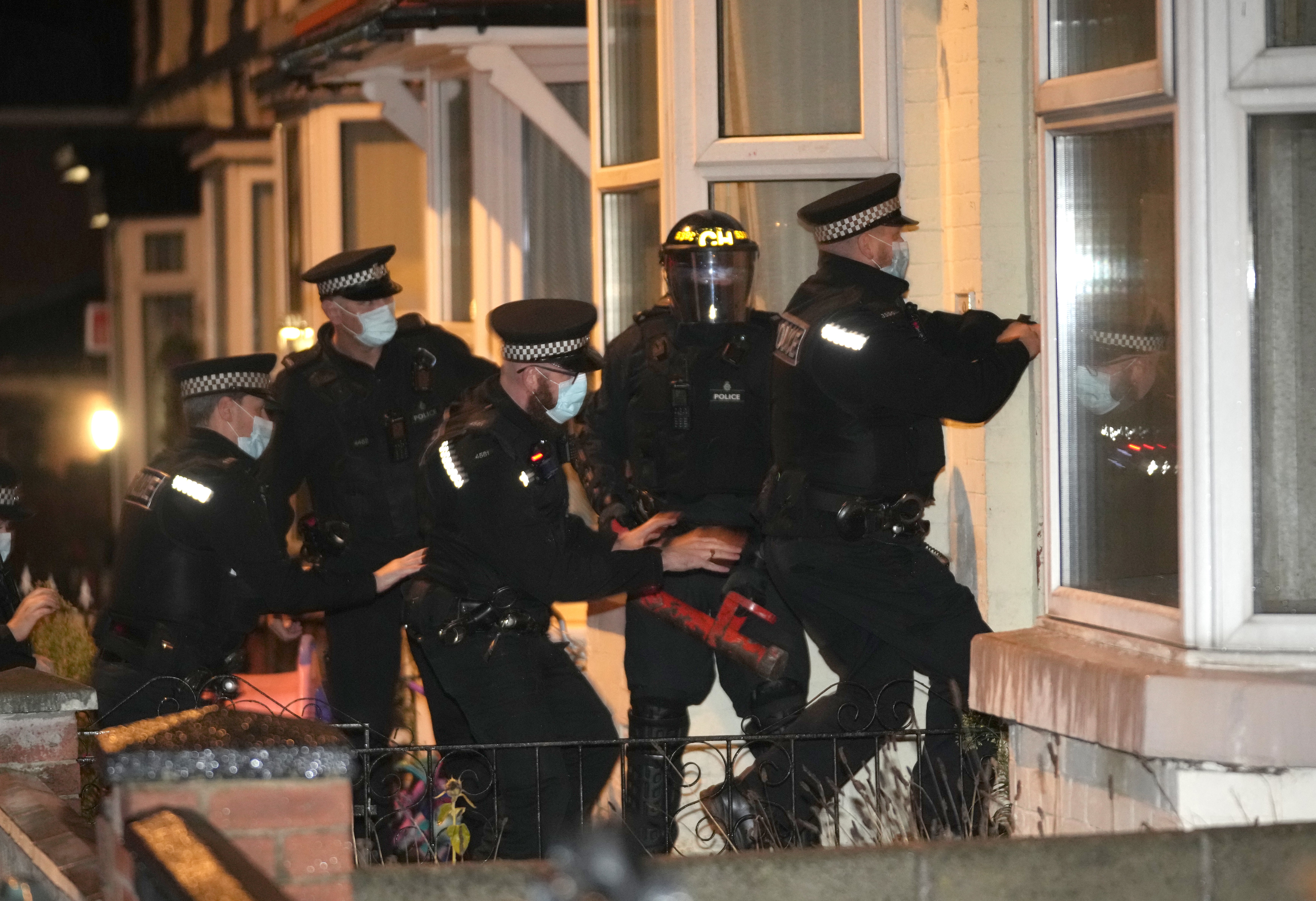County lines drug gangs crackdown sees more than 200 arrested in a week
Officers also shut down 30 county lines gangs, the Met said

A major crackdown on drug dealing gangs saw almost 250 arrested in a single week and more than 100 vulnerable children and adults safeguarded, the Metropolitan Police said.
As part of the force’s most recent County Lines Intensification Week in the seven days to 13 March, the Met seized 4kg of Class A drugs, 14kg Class B drugs, one firearm and two imitation firearms, and 56 knifes and weapons, it said.
In addition, officers shut down 30 county lines gangs, seized more than £284,000 cash and 45 vehicles.
Meanwhile, 25 referrals to the National Referral Mechanism were made, which assesses individuals as potential victims of human trafficking or modern slavery.
The initiative, dubbed Operation Orochi, was the first of its kind in the UK and saw officers from across the Met working together to tackle criminal drug dealing gangs.
County lines gangs are organised criminal networks which transport drugs from one area to another, usually from cities to smaller towns and rural areas.
Often young children are coerced into transporting the drugs by gangs and are commonly forced to do so via threats of violence and intimidation.
The ‘line’ is the mobile phone line used to take the orders of drugs. County lines gangs also exploit vulnerable adults by using their home as a base to deal drugs, which is known as cuckooing.
The operation’s deputy assistant commissioner praised the work of officers tackling “abhorrent” county lines gangs, which he said “causes destruction in communities” and “misery to those impacted by it”.
“I am incredibly thankful to the officers from across the Met who pulled together to achieve these fantastic results. They have worked hard to safeguard vulnerable children and adults and removed some of those who cause serious harm off the streets,” Graham McNulty said.
“Our efforts to tackle county lines are ongoing day in, day out, and the week of intensified effort throughout the country is an extension of that and helps raise awareness of this devastating distribution model.”
He added: “The Met is leading the way when it comes to dismantling county lines. Investigations may have previously taken months but we are now closing down lines and arresting their holders in a matter of weeks.
“Tackling violence remains one of our top priorities and our efforts to crack down on those controlling the lines and safeguard those being exploited to run drugs will only continue.”

During the intensification week the Met worked with a number of forces including Wiltshire, Surrey, Sussex, Essex, Avon and Somerset, Hertfordshire and Thames Valley.
The force also hosted a range of “engagement and diversion activities”, including educational events to explain the warning signs of criminal exploitation to children and parents.
Police teams also delivered exploitation and county lines training to school nurses, midwives and health visitors throughout the week.
The Met added it is increasing its of modern slavery legislation to charge those at the top of the county lines chain.
James Simmonds-Read, national manager of The Children’s Society’s Prevention programme, highlighted that young people may not ask for help themselves because they have been “manipulated into thinking they are making a choice” or because they have been “subjected to terrifying threat.”
He said: “It’s vital that police and all professionals spot instances where children have been exploited by criminals, so we are pleased that many vulnerable people - including young people - have been identified as being in need of support.
“However, the public can also play a crucial role in spotting signs of child exploitation and reporting them to the police and our Look Closer campaign highlights how everyone from commuters to transport and shop staff can help children to escape horrific exploitation. It has been fantastic to have the support of the Met in sharing this important message.
“Young people may not ask for help themselves because they have been manipulated into thinking they are making a choice or because they have been subjected to terrifying threats.”



